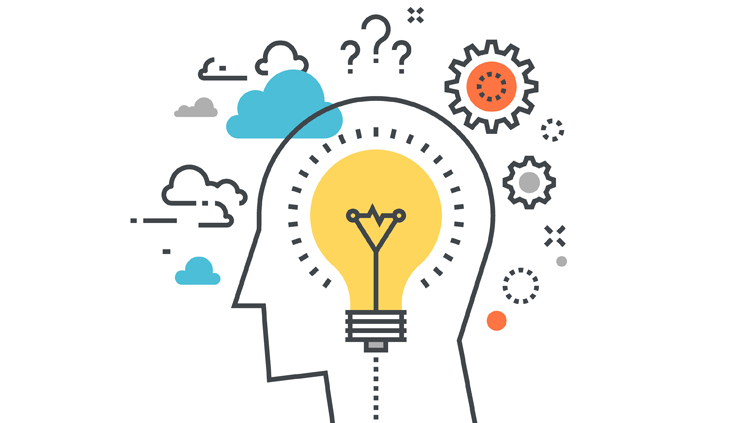Author: Sean M. Noble

An important part of learning to keep in mind when studying is retrieval. When you are studying, you are attempting to transfer information from your short-term memory into your long-term memory. Retrieval is the cognitive act of retrieving or recalling this information from your long-term memory into your short-term memory. When you study information for the purposes of taking a test, you are trying to learn it in a way that you are able to retrieve it later. But there are different types of retrieval that will influence how easily you are able to retrieve memory from your long-term information. There are three main types:
- Recognition – A feeling of familiarity for a previously-encountered stimulus.
- Free Recall – Retrieval of specific information from memory without cues.
- Cued Recall – Retrieval of specific information from memory based on an associated stimulus.
Which of these is easiest to retrieve? Well, try it out yourself and see. Close your eyes, count to 30, try to remember everything you did today, and then, list out the three terms I just described to you. Go ahead and try it, I’ll wait!
.
.
.
It’s tricky right? That’s free recall, the retrieval of specific information from memory without cues. Free recall is the most difficult of the three types of retrieval because you have to generate your own cues. You have to acknowledge that you recognize the stimulus, as well as what the stimulus is that you’re recognizing. This requires both self-generated activation and a pretty high level of it. Ready for part two? Without going back up and re-reading, scroll to the next paragraph for the next test.
.
.
.
.
.
.
The next question is: do you remember seeing the word recognition in the list of three terms?
.
.
.
A little easier to remember that, right? That’s because during recognition, instead of having to remember what it is that you’re trying to recognize like in free recall, your brain only needs to acknowledge whether or not it recognizes the stimulus. Let’s try one last test: Given that we’ve already talked about free recall, can you remember the other type of recall we discussed?
.
.
.
If you remembered cued recall, congrats! Cued recall is similar to free recall in that you are required to retrieve some specific information from memory, but unlike free recall, cues are provided via an associated stimulus. This associated stimulus activates some associated node that’s related to the node of the stimulus you’re trying to remember. If that doesn’t make sense to you, don’t worry, just check out Stacie’s blog post on mental models.
When you’re taking a test, common questions you might be asked to answer into include multiple choice, matching, short answer response, and essay response. Multiple choice questions require recognition to answer, as you are usually trying to use a previously encountered stimulus (the question) to figure which memory you previously encountered (the answer). Matching questions tend to involve cued recall, as while you need to retrieve the specific information from memory, you are generally given some associated cue that should hopefully activate that memory. Finally, short answer and essay responses tend to be free recall, as you are trying to retrieve specific information from memory without associated cues provided in the prompt. Keep these distinctions in mind when studying for tests. If you know an exam will involve lots of multiple choice, work on strengthening the transfer of the stimulus from your short-term memory into your long-term memory. If you know the exam will involve matching, short answer, or essay responses, spend your time working on strengthening the associations between
So given that we want to focus on enhancing recognition and recall for tests, what are some best practices for studying, and for test-taking? There are two major things you can do while studying to simultaneously enhance both your recall and recognition. First, when studying for a test, try to engage in active elaborative rehearsal rather than maintenance rehearsal (for more information on rehearsal, see Dominique’s blog post). This will be particularly helpful for recognition by moving information into long-term memory. Second, when studying, try to engage in active recall to enhance cued and free recall. Active recall involves testing oneself by actively retrieving information, such as with flashcards. Karpicke and Roediger (2008) found that participants who used flashcards to study all word pairs for a word matching test recalled 80% of pairs, compared to students who only studied some half of the pairs and recalled 30%. Important to note is that it is the testing of the flashcards that lead to enhanced recall, not the creation.
Finally, while most of your ability to succeed on tests will come from your studying, there are a few test-taking tips you can try as well to enhance your memory. If you feel like you’re about to remember something but can’t remember it exactly, try thinking “around” what you remember by thinking of different things that might be related to what you are trying to remember. Because of the way mental models work, you might be able to activate nodes which are connected to the answer you are ultimately trying to remember, leading you to remember the answer itself. Also, try using mnemonic devices that you created while studying. The use of a mnemonic device might provide you with enough of a cue necessary to recall the answer you are trying to remember. If none of these work, perhaps more study is the answer!